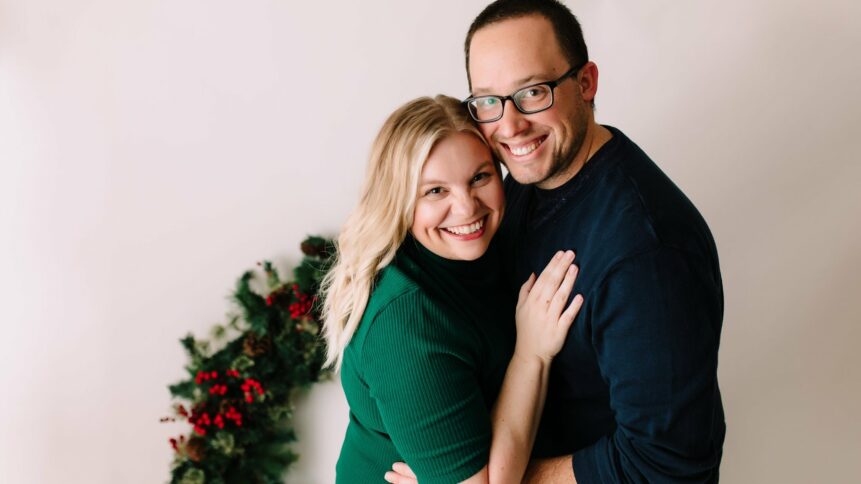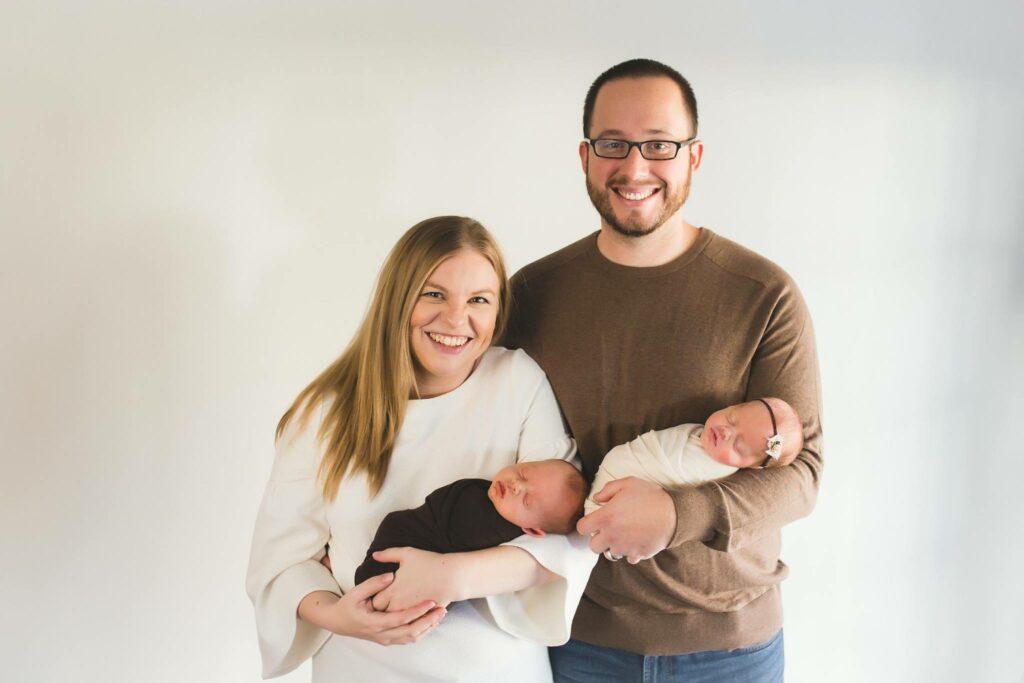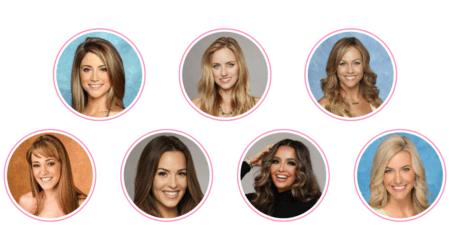
Lindsay and her husband Joey started trying to conceive before they got married, realizing that it may take a little time to start their family together. What they didn’t expect was the fact that they’d need to undergo fertility treatments, in part due to male-factor infertility, to have their twins.
Today, Lindsay writes about trauma, infertility and motherhood and co-runs The Infertile AF Summit with friend and infertility blogger, Tia Gendusa.
Here is Lindsay’s story and why she is passionate about breaking the taboo of infertility:
Q: What’s your fertility/infertility story in a nutshell?
My husband and I spent 3 months trying to conceive before our wedding and then the following year. With a few quick tests we were diagnosed with male factor infertility (however, we found out later this was not our only complication). We had 1 canceled and 1 failed IUI with Chlomid before my OB recommended we go to IVF. Three years after we were married we began IVF, where we did 2 egg retrievals and 1 FET where I transferred two PGS normal embryos that resulted in two positive betas and two healthy babies.

It’s not the most dramatic story and sometimes that makes me insecure about sharing it, if I’m honest. Sometimes I feel people don’t think I know the pain and sorrow of infertility because we got the “easy” answer.
Q: What was the main reason that made you decide to organize The Summit?
I know trauma really, really well and my first career was as a high school teacher, so I like planning and connecting. Before infertility, I survived domestic violence and did a lot of trauma therapy to overcome PTSD and body dysmorphia associated with the abuse. What I learned is that finding your tribe and sharing your truth both help eradicate shame, tremendously ease the pain of the journey, and keep you sane. I think it’s important to talk about healing and how that looks once you become a mom and, honestly, what that looks like for people who keep cycling, choose a different path, or walk away completely. I think each outcome is valid and worthy of attention, and I love that we have created something where it will be okay to be a mom OR not.
To value yourself, your mental health and your relationship so much that you know you are worthy even when things aren’t going as planned.
Q: How has writing books helped you cope with and address this topic?
My first book, The House on Sunset, is a domestic violence memoir. This book catapulted me out of the classroom and onto the stages of nonprofits across the country. While it doesn’t sound much like it matters in the context of infertility, it definitely helped me create the second book for people trying to conceive and made it easier to start blogging about and speaking about that, too.
I think it’s important to talk about healing and how that looks once you become a mom and honestly, what that looks like for people who keep cycling, who choose a different path, or who walk away completely.
When my husband and I found out we’d need infertility treatments, I knew I needed to jump into the community and found it on Instagram. I also created a self care challenge for myself to complete each day: just to do something that was for me, despite whatever else was going on and how bad I felt about myself or our situation. From there, I restructured it to fit into a TWW (Two Week Wait) and thought 14 days was digestible for anyone who wasn’t really into self care yet.
My book, The Two Week Wait Challenge, was a passion project and it’s a quirky, fun read. I’m proud of it and – honestly – writing it helped me remember to take care of myself while also hoping it could give someone the tools to navigate infertility with a little more grace and self-compassion.
Q: What has been the hardest point of your infertility struggle and what is something unexpectedly good that has come from your hardship?
This might sound strange, but my twins came 6 weeks early and spent 36 days in the NICU, and the night they came two things happened that reminded me of infertility and started an unexpected downward spiral in my mental health:
- My OB told me she could see endometriosis when she performed my caesarian section, which was not something I even knew I had at the time. She said it was pretty severe and also said, “you would’ve definitely needed IVF even without your husband’s diagnosis.”
- A NICU nurse told me that IVF babies are prone to prematurity, which made me feel terrible even though it wasn’t her intention.
I wasn’t even out of recovery before infertility slapped me back to the reality that we didn’t “beat it.” We found a loophole and took advantage of it, but we were even more aware of our infertility at that point, on a day that was supposed to be full of joy (that ended up being really scary). Honestly, it just deflated me.
Why couldn’t I have one day off from thinking about infertility, you know?
When my husband and I found out we’d need infertility treatments, I knew I needed to jump into the community and found it on Instagram. I also created a self care challenge for myself to complete each day: just to do something that was for me, despite whatever else was going on and how bad I felt.
BUT that moment also made me realize the only way to process the complicated emotions was to talk about them and to remain within the community. I felt guilty about being pregnant and distanced myself; but becoming a mom actually made me yearn for the infertility community more than I could have imagined. The support and friendships I made through the journey become so clearly some of my best friendships, and I even got a business partner (Tia) out of it.
Q: What advice would you give to someone who is just starting their fertility journey?
Find your tribe, talk about boundaries with your partner, and practice self care like it’s your religion. You’ll need empathetic friends to walk beside you, a clear idea of when you’ve pushed yourself too far (or you need to stop or reroute), and a daily reminder to devote time to yourself so you remember you are lovable and worthy.
Check out the Infertility AF Summit and Lindsay’s new site, in which she addresses “surviving trauma, parenting and all things infertility” at complicatedmommies.com.

Listen to stories, share your own, and get feedback from the community.


















